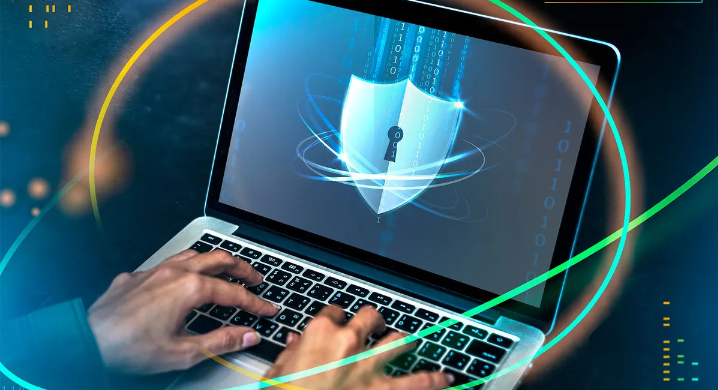In the 21st century, the digital realm has become an integral part of our daily lives. From the way we communicate, shop, work, to how we entertain ourselves, the internet’s omnipresence is undeniable. This vast digital landscape, while offering convenience, also presents a myriad of threats. Cyberattacks, data breaches, and identity thefts are becoming increasingly common, emphasizing the need for robust online security. As we navigate this digital age, understanding and implementing online security measures is not just a luxury but a necessity. This article aims to guide you through the intricacies of online threats and the measures you can adopt to protect yourself in this vast digital expanse. More informations: WebInside
Understanding the Importance of Online Security
The digital age, characterized by instant communication and a wealth of information at our fingertips, has reshaped our world. Yet, this transformation has also ushered in a new era of threats. Every click, download, and online transaction leaves a digital trace, making us susceptible to cyberattacks. Personal photos can be misused; financial details can be stolen, leading to monetary losses; personal details can be harvested for identity theft. Moreover, businesses face the risk of data breaches, which can result in not just financial losses but also a loss of customer trust. In such a scenario, understanding and prioritizing online security becomes paramount. It’s about safeguarding our digital identities, assets, and the very essence of our digital lives.
Common Online Threats
- Phishing Attacks: One of the most prevalent online threats, phishing attacks, often come disguised as legitimate communications from banks, service providers, or even colleagues. These deceptive emails or messages aim to trick users into providing sensitive information, such as login credentials or credit card numbers.
- Ransomware: Imagine being locked out of your computer, with a message demanding payment to regain access. That’s ransomware for you. It encrypts the victim’s data, rendering it inaccessible until a ransom is paid, often in cryptocurrencies like Bitcoin.
- Man-in-the-Middle Attacks: These attacks involve an unauthorized entity intercepting communications between two parties. This could be between a user and a banking website, an online store, or any other platform where data is exchanged. The attacker can then steal, manipulate, or even alter the communication.
- DDoS Attacks: Distributed Denial of Service (DDoS) attacks aim to overwhelm a website or online service with a flood of internet traffic, causing it to crash and become inaccessible to legitimate users. These attacks can be used as a smokescreen for other malicious activities or simply to cause disruption.
- Malware and Viruses: These malicious software programs can infiltrate, damage, or disable computers and networks. From stealing data, logging keystrokes to turning your device into a part of a botnet, the implications of malware and viruses are vast and varied.
Best Practices for Online Security
- Robust Passwords: A password acts as the first line of defense against unauthorized access. It’s essential to have a unique and strong password for each online account. Using a combination of uppercase, lowercase, numbers, and symbols can enhance password strength.
- Two-Factor Authentication (2FA): 2FA adds an extra layer of security. Even if a malicious actor gets hold of your password, they would still need a second verification, often a code sent to your phone, to access the account.
- Software Updates: Regularly updating software ensures that you’re protected from known vulnerabilities. Cybercriminals often exploit outdated software, so keeping everything up-to-date is crucial.
- Virtual Private Networks (VPNs): VPNs encrypt your internet connection, making it harder for hackers to intercept your data. It’s especially useful when using public Wi-Fi networks.
- Safe Browsing Habits: Being cautious online can prevent many threats. This includes not opening emails from unknown senders, avoiding suspicious websites, and refraining from downloading files from untrusted sources.
- Backup Data: Regularly backing up data ensures that, even in the event of a cyberattack, your information remains safe and accessible.
The Future of Online Security
The realm of online security is ever-evolving. With advancements in technology, the nature and sophistication of cyber threats are also changing. The emergence of quantum computing promises faster processing speeds but also presents new encryption challenges. Similarly, as artificial intelligence and machine learning become more integrated into our systems, they too can be exploited if not secured properly. The Internet of Things (IoT), with its myriad of connected devices, presents a vast network of potential vulnerabilities. However, with challenges come solutions. The future will likely witness the rise of more advanced encryption techniques, AI-driven security protocols, and a more integrated approach to online security, combining both hardware and software solutions.
Conclusion
In conclusion, the digital world, with all its conveniences, also brings along a host of challenges. As we become more interconnected and reliant on online platforms, the importance of online security becomes even more pronounced. It’s not just about protecting data but about ensuring trust, integrity, and a seamless online experience. By staying informed, being proactive, and adopting a multi-layered approach to security, we can navigate the digital realm with confidence. Remember, in this vast digital landscape, vigilance, awareness, and preparedness are your best allies. Embrace the digital age, but do so with caution and care.
Original Source:
